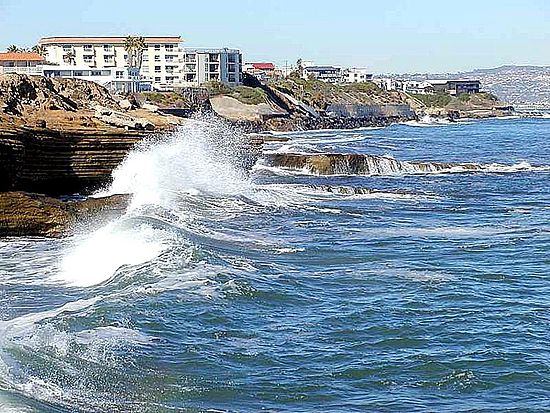It’s Crunch Time for Condos As Florida Deadlines Loom
Category: Financial and taxes in retirement
October 15, 2024 — As if Florida condo owners didn’t have enough to worry about. A deadly duo of hurricanes caused suffering and loss of human life. But Condo buildings 3 stories face other kinds of challenges, as December 31 deadlines for Florida’s stringent new engineering inspections and reserve studies go into effect.
If condo and HOA boards aren’t nervous about all this – they should be.
The original Building Safety Law (SB 4), and later clarified by SB 154, was a reaction to the tragic Surfside building collapse in Miami in 2021. It specifies 2 key requirements for condominium associations that will fundamentally those will affect their finances. The first is a Milestone Inspection Study, the second is the Structural Integrity Reserve Study. We will explain those in greater detail, later. But first, let’s talk about how this will unfold in the real world.
How this plays out in the real world
To give you an idea of how these new requirements work in an actual practice, here is how they are playing out in your editor’s condo building in Florida.

Our association consists of 2 separate 3 story buildings. Since both are over 3 stories, SB 4, as revised by SB 154, applies. When those laws were passed our board, which I am on, was proactive about complying. We searched early on for a qualified engineering firm to perform the Milestone Inspection Study. It turns out we were not the only HOA looking for someone who could do the study, so we felt fortunate to find one who was qualified. After all, every HOA in Florida with a 3 story building was looking for the same type of company. We contracted for the inspection in late 2023, the visual inspection was held in April, 2024, and we received the Phase 1 draft report in May. We were fortunate that the report found no significant problems, so we were exempt from the more detailed Phase 2 report.

We also searched for a firm that could provide the Structural Integrity Reserve Study. This too was a big scramble, with so many HOAs searching in a small pool of qualified consultants. In August of 2023 we received this communication from the company we ultimately chose (we received bids from 2 companies, one almost double the price of the other):
“As of now, we do not have any appointment for SIRS this year. I am booking the month of June 2024. If you know for sure that you will be scheduling an appointment next year, then please send the signed contract.
XYZ Firm
After comparing bids and promised completion dates, we chose the same company that has been providing (traditional and less detailed) reserve studies in the past.
The reserve firm started work in August, 2024, and provided its report on Oct. 11, 3 days before our October board meeting. We were not as fortunate in this report as we were in the Structural Integrity Report. With all of the new reserve categories which need to be funded, our reserves (over $800,000) were not adequate to cover the replacement value of the 10 required categories. Under SB 4 we must be on a schedule to fully fund them, either by assessment or by yearly additions to what we already contribute to our reserves. For example, in 2025 our normal reserve commitment would be $304,000. To get on a fully funded schedule we would need to add an additional $71,000 for 10 years, and an extra $24,000 for 5 more years. An alternative would be to levy an assessment to catch up all of the shortfall at once, and unappealing choice.

Implications for HOAs
First of all, condo associations must complete their Milestone Inspection Reports by the required dates (Dec. 31, 2024 for most). If they don’t complete the inspections and provide the reports to owners and local building officials, they are in breach of fiduciary responsibility. If phase 1 of the inspection shows problems, they have to move on to phase 2.
Second of all, most associations’ reserve funds are woefully inadequate. Replacing the 10 required reserve items at today’s prices will be astronomical, even if they have to be funded over their useful life. Catching up will dramatically increase condo fees paid by owners – enough that some will not be able to pay them. Several factors are driving these huge increases:
Reserves for 10 categories must be calculated at full replacement cost. Full replacement cost will be a challenge. But compounding that, they can not be used for other purposes (such as funding insurance premiums) or other categories of expenses. Roof reserves have to be used for roofs, foundation dollars for foundations, etc. Some of these categories, such as windows, were not typically covered in reserves by many associations, adding to the total amount needed to be reserved.
Reserves have to be funded in full. An annual “fully” funding reserve contribution does not require a vote amongst association members. A majority vote is required when an association decides to collect less than the annual “fully” contribution amount. Effective December 31, 2024, members of a unit-owner controlled association may not vote to use reserve funds, or any interest accruing thereon, that are reserved for (the big 10 items) for purposes other than their intended purpose.
Bottom line
Most HOAs are going to find out that the fees they charge their residents are going to go up – dramatically. That is mainly because reserve funds are way below what they should be, but also because the Milestone Inspection Reports will uncover structural problems that must be repaired. Add that to the sure thing that because of all of these natural disasters, insurance premiums are going to continue to soar above their already current historic levels.
Many residents, fearful of future hurricanes may decide to move out of state. HOA fees may have to go up so much that many residents will sell, and in some cases the entire HOA might have to go under because the cost of repairs and reserve requirements no longer make economic sense.
The two key components of SB 4 and SB 154
As promised, here is the detail on what is required.
The new requirements go into effect Dec. 31, 2024 and mostly affect buildings of 3 stories or more.
- Milestone Inspection Study
- Structural Integrity Reserve Study
Milestone Inspection Study
Existing buildings must have a milestone study by the end of the year in which they reach 30 years of age (built before July, 1992), or 25 years if within 3 miles of the coastline. Phase 1 of the Inspection Study is a visual examination by a qualified architect or engineer. Phase 2 is required if deterioration is detected. The inspection reports must be made available to owners and local building officials. Failure to comply is a breach of fiduciary responsibility by the officers and directors of the Board. The inspections need to be repeated every 10 years.
Structural Integrity Reserve Study
Associations existing on or before July 1, 2022 must have a structural integrity reserve study completed by December 31, 2024, for each building on the condominium property that is three stories or higher. The study must include, at a minimum, the following items as related to the structural integrity and safety of the building (some of these are new):
a.Roof
b.Load-bearing walls or other primary structural members
c.Floor
d.Foundation
e.Fireproofing and fire protection systems
f.Plumbing
g.Electrical systems
h.Waterproofing and exterior painting
i.Windows
j.Any other item that has a deferred maintenance expense or replacement cost that exceeds $10,000.
At a minimum, a structural integrity reserve study must identify the common areas being visually inspected, state the estimated remaining useful life and the estimated replacement cost or deferred maintenance expense of the common areas being visually inspected, and provide a recommended annual reserve amount that achieves the estimated replacement cost or deferred maintenance expense.
Bottom line
The Dec. 31 deadlines and the tough new requirements for inspections and reserves are a very big deal. They are good things because they will protect lives and property, but the process is going to be painful. If you live in an HOA anywhere, even if the law doesn’t require it, you should be sure that your association is taking steps in this direction.
For further reading:
SB 154 Sends Tsunami Towards FL Condo Market






Comments on "It’s Crunch Time for Condos As Florida Deadlines Loom"
Admin says:
It is not a happy story, but it feels a little better when Topretirements scooped the NY Times on one. They just published a similar article to the one we wrote last week, "Why Owning a Florida Condo Is Turning into a Nightmare", talks in great detail about what we covered here. Theirs has many more facts and stories about real people and how they are affected. Some face ruinous $200,000 assessments, and probably the loss of their apartments. Worth reading on a topic that is very timely.
Admin says:
This article from the Tampa Bay Times puts more dimension on the issue. A lot of people living on Social Security and in older condo buildings are seeing huge increases in HOA fees. Listings for sale in FL are up 65%, sales and prices down. See "Homeowners Priced Out of Condos".
Admin says:
According to the Florida News Service, newly elected Republican Speaker of the Florida House says that lawmakers will start addressing condominium issues when they hold committee meetings prior to the 2025 regular session in March. Lawmakers are expected to address condominiums during the regular session, rather than a special session.
“I have heard the call for a special session on condos, just like the rest of us have,” Perez told reporters. “The question shouldn’t be when. The question should be, what? What is the solution that people are offering to the issue before condos? It’s an issue we’ll be discussing during session.”
Admin says:
The condo and HOA crisis continues to generate headlines, particularly in Florida. This article from the AP can help explain it. https://apnews.com/article/florida-condo-association-cost-increase-62de80fcc5de498309d9fea2b78a2984
Admin says:
Here is another article on this subject in the South Florida Sun Sentinel. A prominent condo lawyer points out the defects of Florida's well intentioned laws, hoping that other states can avoid creating problems while creating similar laws. https://www.sun-sentinel.com/2024/12/11/floridas-condo-market-faces-a-tough-test-opinion/?utm_source=XP+Dispatch+1+-+Becker+Lawyers+-+Managers+of+Community+Assoc&utm_campaign=44ee914afc-EMAIL_CAMPAIGN_2024_12_11_09_00&utm_medium=email&utm_term=0_52cfadc688-44ee914afc-569677924